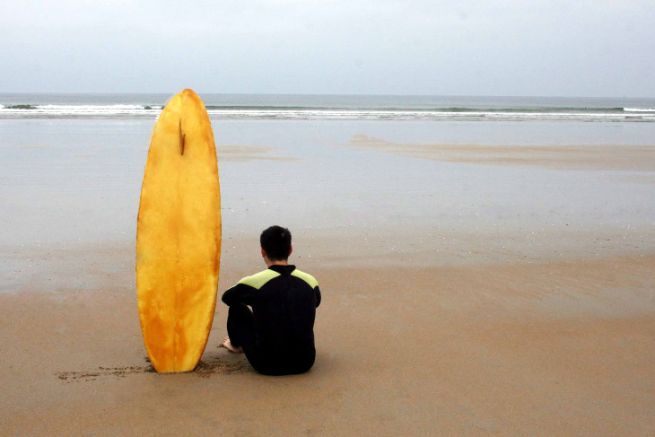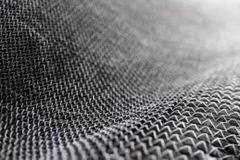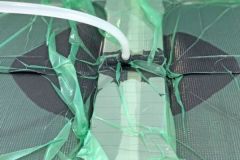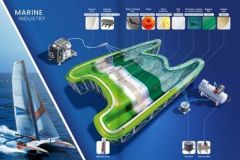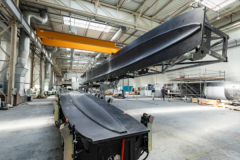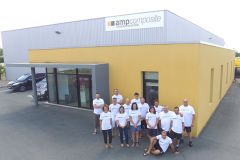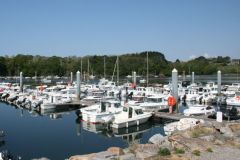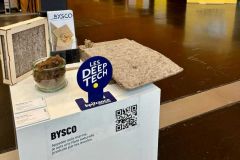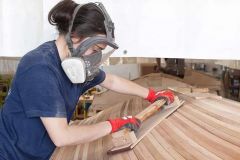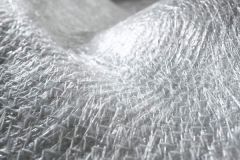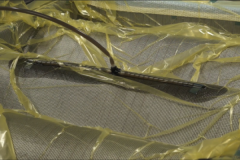A new outlet for Landes pine in composites
Arrosia is a young company. Born in March 2020, the company works around the valorization of the pine of the moors, with as a first development the Ecopin resin, a completely biosourced alternative to the resins resulting from the petrochemistry for the composite materials. "I am an industrial designer and I was looking for a material that was available and that made its mark on the region. We work in co-development with Biogemme and forest owners. Our business is the development of 100% biobased polymers from Landes pine and agro-forestry co-products" explains Camille Suarez, founder of the company.
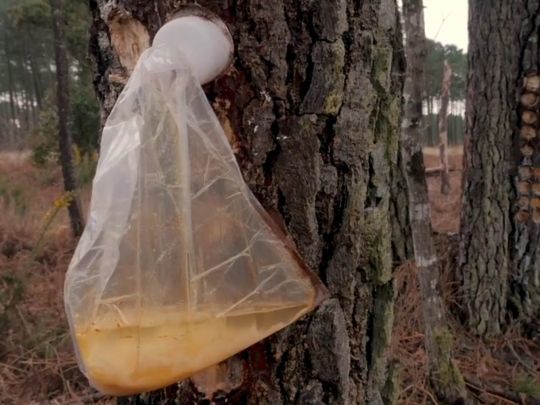
Ecopin: a natural and recyclable thermoplastic resin
Arrosia's main development, Ecopin resin is a thermoplastic resin made from pine resin harvested by gemming. It can be used for thermoforming, hot infusion, injection, extrusion or contact molding. The main constraint is that its processing temperature is between 110°C and 130°C. Polymerization takes place by drying in the ambient air. Its density is low, about 1.03. "It works with short or long fibers. It works with glass or carbon, but we prefer to do more tests with flax or hemp, our logic being to advance on the recyclability and decomposition of composite materials. The resin has a good UV resistance and keeps its mechanical properties up to 5 cycles. We have already increased the temperature at which it starts to soften. We started with 76°C and the objective is to reach 110°C" explains Camille Suarez.
Several tests have been conducted for products in the boating industry. "We've made a surfboard, daggerboards and various parts for boats, dugouts and kayaks. There is also an interest in textile coating for sailing. The resin is entirely hydrophobic," says Camille Suarez.
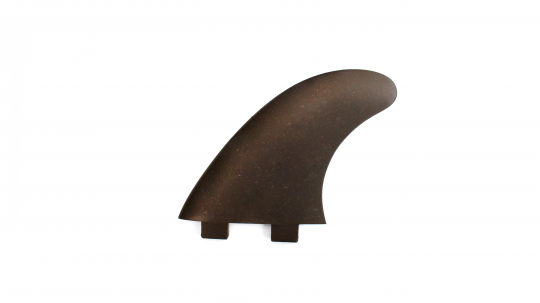
Industrialization and new resins
Arrosia has now reached a level of development that allows it to begin marketing. The company is also working on developments to meet the different applications of the composite. "We are working with an industrial partner to scale up and be able to produce several tons by the end of 2022. We also offer design services to adapt the material to our customers' production lines. We are developing the range with other co-products to make the characteristics evolve according to the uses. Today, only 16% of the Landes forest is exploited and only 6% for gemmage and this is already enough to meet a strong demand" concludes, optimistic the founder of Arrosia.

 /
/ 